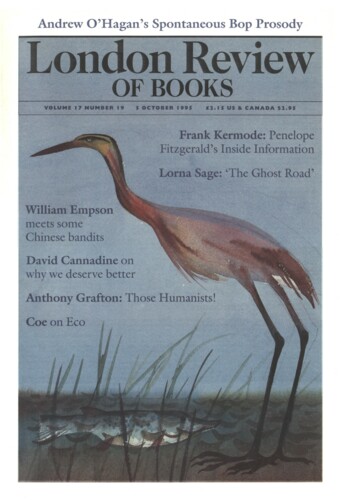Grumpy
Arthur Goldhammer, 5 October 1995
Like Strachey’s Dr Arnold, Louis Pasteur was all ‘energy, earnestness and the best intentions’. The anti-clerical Third Republic made him its principal intercessor with the invisible world. It erected an absurdly baroque shrine to his memory at the Institut Pasteur and named more streets after him than after any other historical figure, save that Republic’s founder, Gambetta. Somehow, though, the reducing lens of irony seems inadequate to bring Pasteur into clear view. If anything still frightens us, it is disease, and Pasteur, though at times an insufferable prig, was also, as the 19th century could say more easily than we can, a benefactor of humankind. Countless wall plaques, popular images and milk cartons remind us that he was not only the promulgator of the germ theory but also the man who conquered fowl cholera and anthrax, as well as a disease called pebrine that left silkworms looking as though they had been sprinkled with pepper and cost the French silk industry millions of francs annually, and the ‘maladies of wine’ (one of which, by causing good claret to spoil in the bottle, threatened to deprive France of some of the benefits of a recent commercial treaty with England). And he became world-famous of course as the vanquisher of rabies, an age-old scourge that killed few but terrified many.

